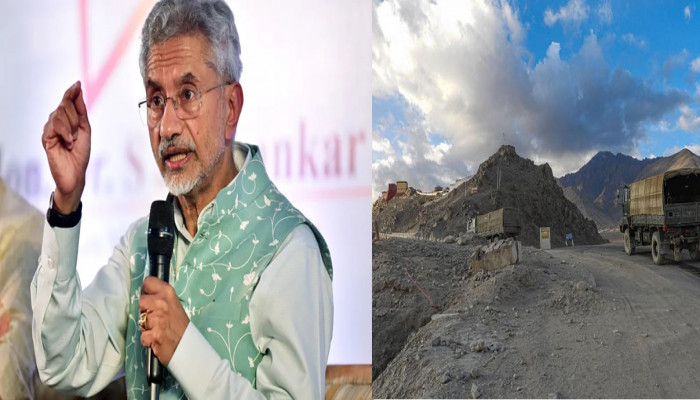EAM Jaishankar briefs Parliament on India-China relations, 'Next priority will be to consider de-escalation'
- In Reports
- 05:03 PM, Dec 03, 2024
- Myind Staff
External Affairs Minister S. Jaishankar addressed the Lok Sabha on Tuesday, providing an update on India’s relations with China, focusing on recent border developments and their implications for bilateral ties.
He noted the strain in relations since 2020, saying, “Our ties have been abnormal since 2020 when peace and tranquillity in the border areas were disturbed as a result of Chinese actions. Recent developments that reflect our continuous diplomatic engagement since then have set our ties in the direction of some improvement.”
Jaishankar highlighted China’s illegal occupation of 38,000 sq. km of Indian territory in Aksai Chin following the 1962 conflict and Pakistan’s ceding of 5,180 sq. km of Indian territory to China in 1963. He added that discussions on the boundary issue have continued for decades, but the Line of Actual Control (LAC) still lacks a common understanding in some areas.
“We remain committed to engaging with China through bilateral discussions to arrive at a fair, reasonable, and mutually acceptable framework for a boundary settlement,” Jaishankar stated, emphasising India’s approach to resolving the boundary issue diplomatically.
Reflecting on the events of 2020, he explained China’s large-scale troop deployments along the LAC in eastern Ladakh, leading to disruptions in patrolling and face-offs. He praised the armed forces for their rapid counter-deployments despite logistical challenges and the pandemic.
Jaishankar outlined immediate and long-term priorities: “The immediate priority was to ensure disengagement from friction points to prevent further clashes. This has been fully achieved. The next priority will be to consider de-escalation addressing the massing of troops along the LAC.”
He stressed three guiding principles for managing the border situation: strict respect for the LAC, no unilateral alteration of the status quo, and adherence to past agreements.
Concluding, he said, “"In all of this, we were, and we remain very clear that the 3 key principles must be observed in all circumstances. One, both sides should strictly respect and observe the LAC. Two, neither side should attempt to unilaterally alter the status quo and three, agreements and understandings reached in the past must be fully abided by in their entirety. As a result of the sustained tension and specific developments in the border areas, our overall relationship with China was bound to be impacted adversely. In the new circumstances, it was obviously not possible to continue the normal exchanges, interactions and activities as in the past. In this regard, we made clear that the development of our ties was contingent on the principles of mutual sensitivity, mutual respect and mutual interest. Throughout this period, the government has maintained that India-China relations cannot be normal in the absence of peace and tranquillity in the border areas. The combination of a firm and principled stance on the situation in the border areas, as well as our clearly articulated approach to the totality of our ties have been the foundation of our engagement with China for the last 4 years...".”
This statement comes two months after a major border breakthrough, allowing the resumption of patrolling along the LAC and signalling efforts to address the longstanding tensions since the Galwan Valley clashes of 2020.







Comments